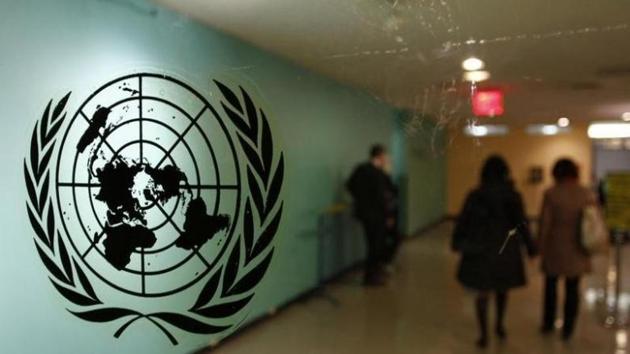Indian women pioneers at UN hailed as upholders of women’s rights
India’s Permanent Representative Syed Akbaruddin said the Indian women pioneers “served as bridges between the processes of global norm-building at the UN and the institution building processes at the national level” in India.
Four Indian women pioneers at the UN -- Hansa Mehta, Lakshmi Menon, Begum Hamid Ali and Vijayalakshmi Pandit -- were hailed on Tuesday as role models who worked to champion gender equality at a nascent world organisation.

At a panel discussion at the United Nations (UN) on the Southern Legacy of Women and the Origins of the UN, Rebecca Adami, a senior lecturer at the University of Stockholm, said the push for gender equality came not from Western nations, but from the countries of the South.
She credited Hansa Jivraj Mehta with ensuring the inclusion of women in the UN’s Universal Declaration of Human Rights (UDHR), which in its initial draft spoke only of the rights of the “man” and Eleanor Roosevelt, the champion of human rights from the US, who chaired the drafting committee was oblivious to the omission of women.
“Hansa Mehta, the only female on the Commission on Human Rights besides Eleanor Roosevelt, objects to the use of ‘man’ in the draft arguing that member states can use this to restrict the rights, rather than expand them since women are not considered necessarily included in that wording,” Adami said.
As a result of Mehta’s persistence, the draft was amended to mention “human persons” and “equality of men and women” in the UDHR adopted in 1948.
Adami said that Begum Hamid Ali, the Indian delegate to the UN Commission on the Status of Women in 1947, championed the inclusion of women, whom she had described as the “immense source of wealth lying at the thresholds unused”.
India’s Permanent Representative Syed Akbaruddin said the Indian women pioneers “served as bridges between the processes of global norm-building at the UN and the institution building processes at the national level” in India.
Mehta was also a member of the Constituent Assembly and the Indian Constitution draws upon several aspects of both the UN Charter and the UDHR, he said.
“The themes of equality, freedom, justice, peace and respect for international law resonated throughout the Indian Constitution that was worked upon around the time that the theme of Human Rights was resonating universally,” he said.
Lakshmi Menon, who headed the Commission on Status of Women during 1949-50, “was an outspoken advocate of the ‘universality’ of human rights,” he said.
She, “along with her colleagues from other developing countries, strongly opposed the concept of ‘colonial relativism’, which sought to deny human rights to people in countries under colonial rule,” he added.
Akbaruddin drew attention to the stark contrast between the developing and developed countries in promoting women to positions of authority at the UN.
“While the global North tries to position itself as a leader of gender equality, there have been only three women who have served as the President of the General Assembly - all three have been from the global South,” he said.
The first was Vijayalakshmi Pandit in 1953 and she was followed by Angie Elizabeth Brooks of Liberia in 1969 and Haya Rashed Al-Khalifa of Bahrain in 2006.
(This story has not been modified from its original version)
Get Current Updates on India News, Lok Sabha Election 2024 live, Infosys Q4 Results Live, Elections 2024, Election 2024 Date along with Latest News and Top Headlines from India and around the world.



